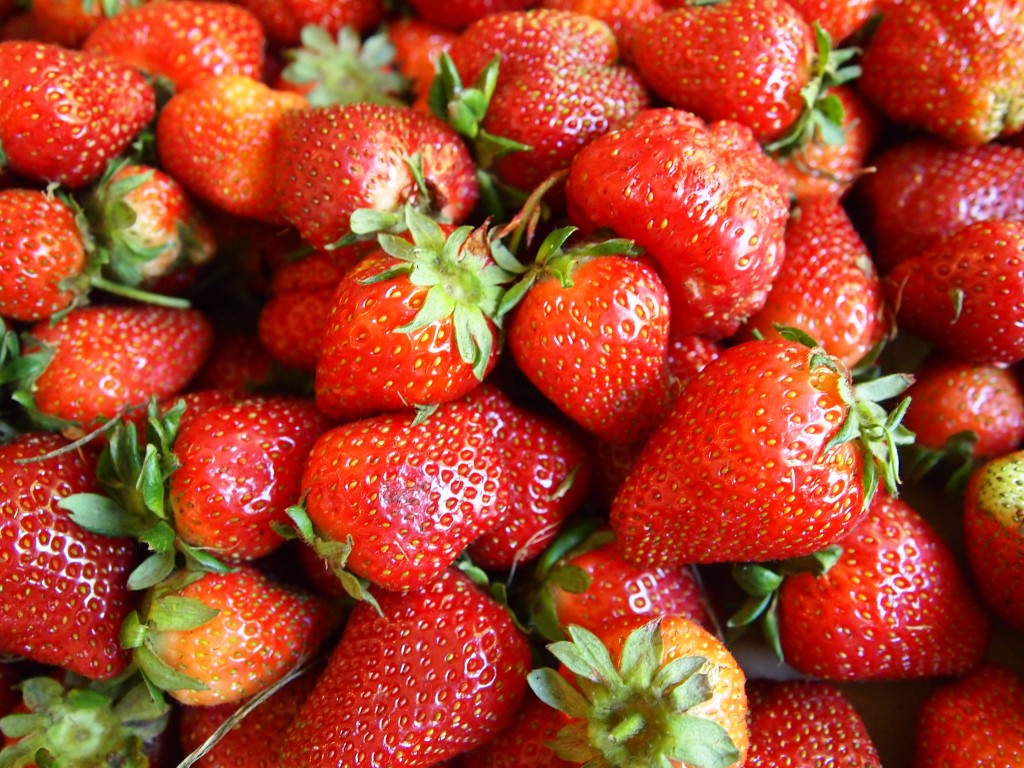
The Keys to Healthy Digestion
Julien Haler, via Flickr Creative Commons
Switching to a whole-food, plant-based approach to eating is an excellent way to enhance your digestion. It is rich in fiber, vitamins, minerals and health-promoting phytochemicals and avoids hard-to-digest foods such as meat, dairy and food high in fat. You will feel better and can prevent many digestive disorders such as diverticular disease and even certain cancers such as gastrointestinal and colorectal, along with reducing the overall risk of all cancers and chronic diseases such as heart disease.
Your digestive system, however, will need some time to adapt. You are now eating more healthy high-fiber foods and complex carbohydrates, but they are also more complex to break down, which means your body needs to produce enough digestive enzymes to do the job. After about a week or two, your body will get used to this new way of eating.
Digestive enzymes are an essential part of our ability to absorb the nutrients from the food we eat.
The Role of Digestive Enzymes
Digestive enzymes are an essential part of our ability to absorb the nutrients from the food we eat. This is because food needs to be broken down into smaller components (chemical substances) so it can be absorbed and assimilated. Digestive enzymes break down specific parts of the food such as carbohydrates, protein and fats. This process of digestion and breaking down food into absorbable parts starts in the mouth and ends in the large intestine and colon.
What Enzymes Break Down What Foods
Each digestive enzyme has a specific target that aids in proper and efficient digestion. For example, the digestive enzymes that break down protein include proteases such as peptidase, papain and bromelin, along with pepsin. Fats or lipids are broken down by lipases; lactose, or milk sugar from dairy foods, is broken down by lactase; complex carbohydrates such as beans and vegetables are broken down by alpha-galactosidase; and cellulose breaks down parts of cell walls in plant foods such as grains, beans, and certain vegetables such as broccoli and cauliflower. Digestive enzymes are primarly produced in the stomach, pancreas and mouth.
Why Chewing Your Food is Important
Amylase and ptyalin are two of the many enzymes that are released in the mouth that begin the breakdown of carbohydrates (starches and sugars). The digestion of fats begins in the mouth by the release of lipase that is secreted by salivary glands while we chew. This is why chewing your food well is an important part of good digestion. Swallowing after a few short chews doesn’t give these digestive enzymes a chance to do their job. As a result, digestion can be impaired from the start, making it harder for your body to digest and absorb these nutrients. Nutrients that are not absorbed can become fermented by the bacteria in our gut, which can produce gas, abdominal discomfort and bloating. Oligosaccharides, found in plant foods such as beans and some produce such such as garlic, onions, broccoli, cabbage and Brussels sprouts, can cause some gas production; however, these complex carbohydrates have been shown to promote a healthy digestive tract and have functional benefits similar to soluble fiber such improved blood sugar control after a meal.
Our bodies are designed to naturally produce the appropriate enzymes we need for proper digestion and absorption of nutrients, but this process is not always efficient for a variety of reasons such aging, certain digestive disorders or disease that can affect the digestive tract such as Celiac disease and Crohn’s disease, pancreatic insufficiency and other factors such as pH balance.
How to Stop Gas and Bloating
When you first begin Ornish Lifestyle Medicine, it can take a while for your body to kick in and produce enough digestive enzymes. This is especially true if you are accustomed to eating a low-fiber diet of processed foods and you quickly switch to a whole-food, plant-based approach, high in fiber and complex carbohydrates. This is why sometimes after eating a high-fiber meal of complex carbohydrates such as beans or broccoli, you may experience gas or bloating. After a few weeks, however, this bloating and gas stops as your body becomes more efficient at producing the digestive enzymes that it needs to digest and absorb all the essential nutrients.
One approach is to slowly add higher fiber foods to allow the body to start producing more of the essential enzymes for digestion. Another approach is to support your body with the important digestive enzymes it needs by taking a digestive enzyme supplement. The digestive enzyme alpha-galactosidase can help break down high-fiber foods and reduce gas-related symptoms. Certain digestive enzyme supplements such as Beano contain alpha-galactosidase that aids in the breakdown of these complex carbohydrates. Some studies show the effects of supplementing with alpha-galactosidase such as Beano on reducing gas-related symptoms. Here are a couple of the top picks for digestive enzymes that break down complex carbohydrates from Consumer Labs, a publisher of test results on health, wellness, and nutrition products:
Raw Enzymes by Garden of Life which include alpha-galactosidase, cellulose, and other digestive enzymes that support the effective breakdown of complex carbohydrates found in plant foods gets. Consumer Labs gives it a high rating.
Solgar Comfort Zone is another Consumer Labs-approved product that offers a broader range of digestive enzymes and includes digestive aids such as fennel extract, ginger and anise powder, which may help to reduce gas, bloating or nausea.
A Few Tips for Taking Digestive Enzyme Supplements
- Take with food. You can take just before a meal, but anytime between 20-30 minutes of your meal is beneficial.
- Choose a high quality digestive aid that includes the specific digestive enzymes your body may need, such as alpha-galactosidase, cellulose and amylase for complex carbohydrates or lactase for lactose.
- Stay well-hydrated with adequate water intake depending on your needs. Strive for at least 64 ounces a day as you are increasing your fiber intake.
- Start slowly and notice how your body responds. After a week or two, slowly decrease the intake and allow your body to naturally adjust and produce the necessary enzyme for efficient digestion and absorption.
The long-term health promoting benefits of a vegetarian, plant-based approach are tremendous, including improved digestive and cardiovascular health, prevention of chronic disease and cancers, decreased inflammation, enhanced immune system, improved blood pressure, blood sugar and weight management – all with an overall heightened sense of well-being and vitality.
Within two weeks, digestive discomfort will begin to fade and the positive benefits are amplified with overall improved digestion, more energy, better sleep, and weight loss averaging about 10 pounds.
What has been your digestion experience after switching to a whole-food, plant-based lifestyle approach?







